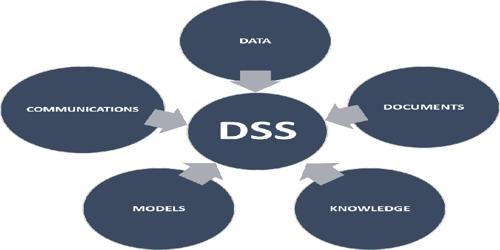Decision Support system (DSS): Decision support system is an information system that utilizes decision model, a database and decision makers own insights in an add hoer, an interactive analytical process to reach a specific decision by specification decision maker.
Characteristics of DSS –
A Decision Support System (DSS) is a computer-based information system that supports business or organizational decision-making activities. DSSs serve the management, operations, and planning levels of an organization (usually mid and higher management) and help to make decisions, which may be rapidly changing and not easily specified in advance (Unstructured and Semi-Structured decision problems). Decision support systems can be either fully computerized, human or a combination of both.
While academics have perceived DSS as a tool to support the decision-making process, DSS users see DSS as a tool to facilitate organizational processes. Some authors have extended the definition of DSS to include any system that might support decision making. Sprague (1980) defines DSS by its characteristics:
- DSS tends to be aimed at the less well structured, underspecified problem that upper-level managers typically face;
- DSS attempts to combine the use of models or analytic techniques with traditional data access and retrieval functions;
- DSS specifically focuses on features which make them easy to use by non-computer people in an interactive mode; and;
- DSS emphasizes flexibility and adaptability to accommodate changes in the environment and the decision making the approach of the user.














